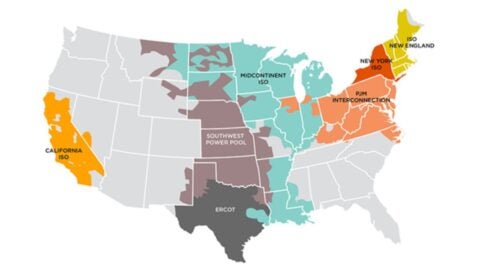Banks Consider Risks in Financing Coal Plants
 This post is by Mark Brownstein, Managing Director of Business Partnerships at Environmental Defense.
This post is by Mark Brownstein, Managing Director of Business Partnerships at Environmental Defense.
A little over a year ago, Environmental Defense, the Natural Resources Defense Council (NRDC), and Ceres sent a letter to the three lead banks financing the TXU deal we helped broker. We said the banks no longer could ignore CO2 in their investment decisions.
Today we are seeing the culmination of this effort. The three banks – Citigroup, J.P. Morgan Chase, and Morgan Stanley – have announced that they will require utilities seeking financing to prove the new plants would be economically viable under an expected federal cap on greenhouse gas emissions.
This will make it much harder for utilities to build conventional coal plants.
The banks, in consultation with Environmental Defense, NRDC, and some leading power companies, developed three Carbon Principles to manage the risk in financing utilities:
The Carbon Principles:
- Energy efficiency. The banks will encourage clients to invest in cost-effective demand reduction through energy efficiency. Demand reduction will be considered in financing new fossil fuel generation.
- Renewable and low-carbon energy technologies. The banks will encourage clients to invest in cost-effective renewable energy and distributed technologies. Production increases from renewable and low-carbon energy generation will be considered in financing new fossil fuel generation.
- Risks in fossil fuel generation. Due to evolving climate policy, investing in CO2-emitting fossil fuel generation entails uncertain financial, regulatory, and environmental liability risks – for example, the cost of purchasing carbon credits. Banks will assess and reflect these risks in financing new fossil fuel generation.
In addition to the Principles, the consortium has developed an Enhanced Due Diligence framework to help lenders better understand and evaluate the carbon risks associated with coal plant investments.
The Carbon Principles and Enhanced Due Diligence framework are a good first step in assessing electric generation options in light of the pressing need to substantially reduce national greenhouse gas pollution. But they are only a first step.
If the banks thoroughly implement the Enhanced Due Diligence process and act on their findings, we will see a change in the direction of investments. In fact, all financial institutions should be using these Carbon Principles and Enhanced Due Diligence framework.
But even if the Principles and framework become business-as-usual, we will not have gotten where we need to go. To stop global climate change, we must have federal legislation that caps carbon emissions.












